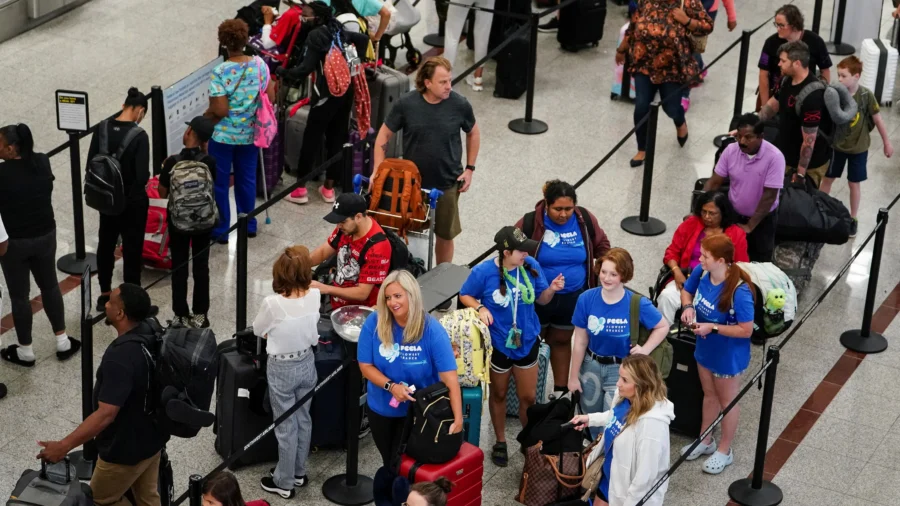WASHINGTON—U.S. flight cancellations fell to the lowest rate in at least a decade in 2023, the U.S. Transportation Department said Wednesday, after a string of bumpy years for air travel.
There were 16.3 million U.S. flights in 2023 and a cancellation rate of below 1.2 percent, the lowest since at least 2013, USDOT said, adding that it was even better over the holidays.
The cancellation rate for the period from Dec. 17, 2023 through Jan. 1, 2024 was 0.8 percent, despite a record number of passengers, the department said.
That was far below last holiday season’s 8.2 percent cancellation rate, which included the Southwest Airlines meltdown that disrupted 2 million passengers and led to a record-setting $140 million civil penalty last month.
“We’ve been pushing the airlines hard,” Transportation Secretary Pete Buttigieg said on CNBC Wednesday. “We’ve pressed them on realistic scheduling.”
Mr. Buttigieg said last month he wanted to see additional declines in flight delay rates as well. The Biden administration plans to propose rules to mandate compensation for lengthy delays or cancellations that are the fault of carriers.
Airlines for America, representing American Airlines, Delta Air Lines, United Airlines, Southwest, and others said U.S. airlines had a December on-time arrival rate of 83.7 percent and 99.6 percent completion factor.
“This is a direct result of the focused, dedicated work our carriers have been doing for well over a year—including hiring aggressively, adjusting schedules and investing in new technologies,” the industry group said Wednesday.
On Friday, the group urged USDOT and the Federal Aviation Administration to do more to address the impact of private planes and air traffic controller staffing shortages on flight delays and cancellations.
In June, a government watchdog report said key facilities face significant staffing challenges, posing risks to air traffic operations. At many facilities, controllers are working mandatory overtime and six-day weeks to cover the shortage.
By David Shepardson


